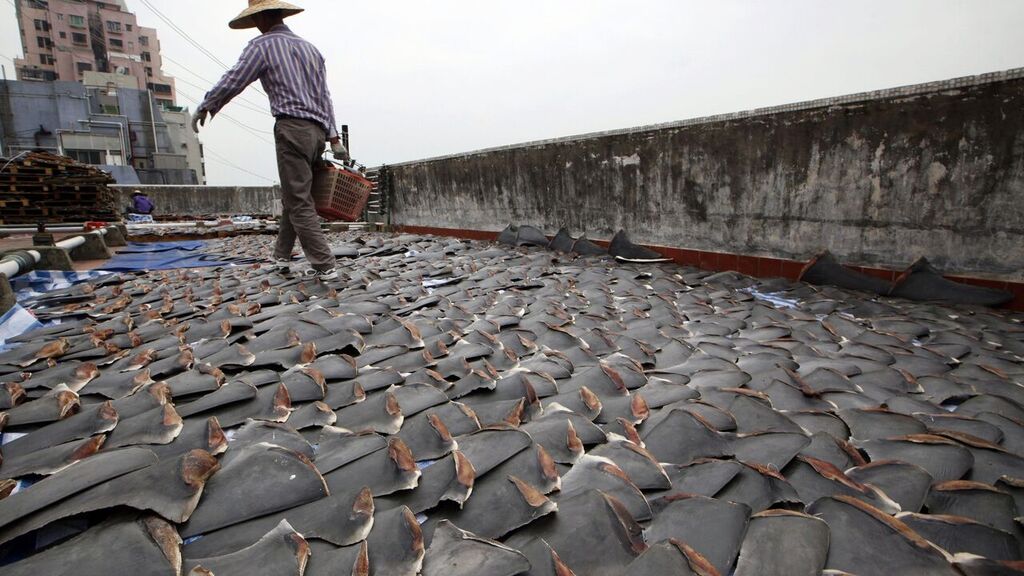
Capturing the Fu Yuan Yu Leng 999, and why more effort is needed
By Brittney MacDonald, Life & Style Editor
The Galapagos Marine Reserve, located approximately 1000 km from mainland Ecuador, is a site known for its plethora of unique species and prominent biodiversity. Due to this, it is protected under global law as a place where no commercial fishing is allowed, and it is a site that is routinely and heavily monitored to ensure the safety of its ecosystem and all animals that reside or migrate through it. This includes several species of endangered sharks, including the iconic scallop hammerhead.
On August 13, authorities boarded and investigated a Chinese ship that was passing through the reserve according to an article by Quartz. On board they discovered approximately 135 metric tons of shark meat, including meat from endangered species—such as the scallop hammerhead—as well as threatened species, such as silky sharks. After further investigation it was determined that the suspect ship, the Fu Yuan Yu Leng 999, was not the fishing vessel, but merely a carrier vessel for the meat gathered by smaller ships still at large.
These smaller vessels exploit an international law that requires all large transport vehicles to employ an Automatic Identification System (AIS), which is a form of GPS. Because these smaller vessels do not commercially transport anything, they are not required to have one, which makes tracking them nearly impossible. Hence the term “ghost poaching,” because they are literally invisible on radar.
Though catching sharks as a result of bycatch—meaning you are actually fishing for something else and you happen to catch a shark—is not illegal, specifically targeting them is. Also, the majority of the variety of shark meat found on board the Fu Yuan Yu Leng 999 belonged to protected species of sharks, which means that any transport of them is always illegal. In fact, according to Ecuadorian law, the poaching and transport of any protected species is not only a breach of their legal system, but of their constitution, which has recognized the Rights of Nature since September of 2008. The Rights of Nature are defined as the acknowledgement that all natural life forms have a right to “exist, persist, maintain, and regenerate” vital cycles, and that as humans, we may enact judicial law on behalf of nature’s many ecosystems. It sounds complicated, but basically it means that any act that endangers any form of flora or fauna to the point of extinction is a violation of the Rights of Nature, and carries an up to three-year prison sentence, as well as hefty fines.
Unfortunately, the ownership of the Fu Yuan Yu Leng 999 is under investigation, as the owner of the Fu Yuan Yu fleet, a Chinese company by the name of Pingtan Marine Enterprises, claims that the ship was never theirs, and that its previous owner, Fuzhou Honglong Ocean Fishing, made a mistake in claiming it as such. However, Pingtan is currently under investigation for human trafficking and shark poaching in East Timor, and seems to have a history of allocating various assets to shell companies, usually to inflate prices.
Despite this, environmentalists claim the capture of the Fu Yuan Yu Leng 999 is a great step forward, and proof that their new, heavier approach to monitoring the Galapagos Marine Reserve is the way to go. The plan is to buckle down on the carrier vessels, which are more easily monitored and spotted, and therefore eliminate the revenue stream, which will in turn starve out the illegal fishing boats.
If you’d like to donate to this effort you can do so through the Galapagos Marine Reserve website, or through the Sea Shepherd Conservation Society by selecting their Galapagos campaign from their drop-down donation menu.



